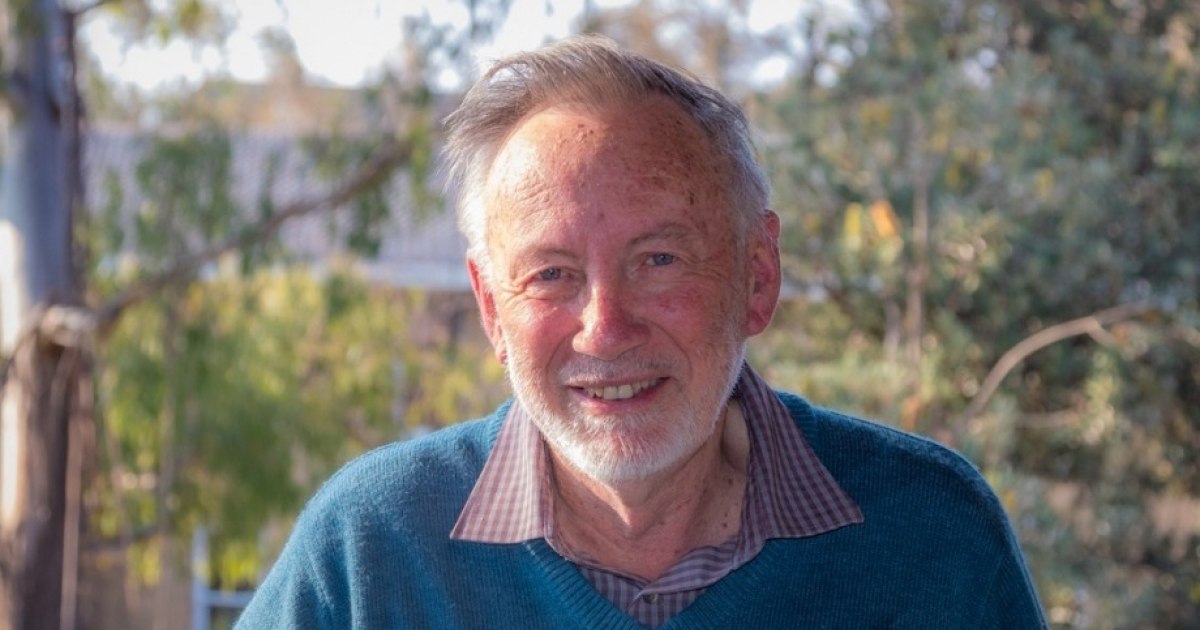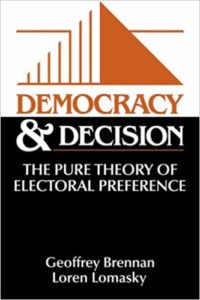
There were two sides to the late Geoffrey Brennan. The first was the world class academic and intellectual who was multidisciplinary, curious, committed to the principles of liberty and freedom, and rigorous in his theory and method. That’s how he collaborated so effectively with James Buchanan, Gordon Tullock, and other members of the first generation of public choice scholars first at Virginia Tech and later at George Mason University. It was also how he and Loren Lomasky and Philip Petit wrote groundbreaking and important books on democracy and deliberation.
But the other side to Brennan, the side those of us frequently saw who were fortunate enough to have known him, was the deeply kind, generous, outgoing, person who made time for students and colleagues, smiled easily, sang beautifully, and made numerous friends during an academic career that was cut short this week by leukemia at the age of 77.

And that personality was important in succeeding at the Public Choice Center during his tenure there. Not everyone could handle Buchanan’s formidable intellect and particular personality, but Brennan’s razor sharp mind, along with his patience, decency, and giving spirit were more than up to the task of bringing out the best in his co-authors, colleagues, and students over his time in Blacksburg and beyond.
Brennan liked to describe himself as the young “blue eyed boy” who arrived in Blacksburg in the 1970’s and began a collaboration with Buchanan that spanned more than 20 years and included co-authoring such seminal works as The Power to Tax and The Reason of Rules. After leaving Blacksburg, he returned to his native Australia only to be lured back to the US where he helped found one of the first of the new generation of PPE programs that are sprouting up all over the world. Along with Mike Munger, Brennan started and oversaw the joint PPE at Duke and UNC-Chapel, splitting his years living in North Carolina and Canberra, teaching and writing.
After his collaborations with Buchanan, Brennan become more interested in questions at the intersection of politics and philosophy and used his economics training with skill in co-authoring Democracy and Decision in which he and Loren Lomasky tried to tackle a long standing puzzle to economists – why do people bother to vote at all understanding that their individual vote plays no tangible role in the outcome of elections. Their solution was to model voting as an emotive act rather than an instrumental one. He then turned his attention to concepts of esteem and norms in his later work, again blurring the boundaries between disciplines.

Brennan’s relationship with Liberty Fund spanned more than five decades. He attended, directed, and discussion led more than 70 colloquia on various topics in economics, philosophy and politics. Along with Hartmut Kliemt and Robert Tollison, he served as the co-editor for Liberty Fund’s 20 volume set of The Collected Works of James Buchanan. I had the privilege of serving as the Fellow for his final Liberty Fund conference, appropriately in Blacksburg, in 2018 on Buchanan’s legacy. As Geoff often, perhaps always, did, he made everyone feel welcome, challenged and pushed the conferees politely but firmly, and of course sang with that majestic baritone voice on the closing night. He will be missed.

READER COMMENTS
Pierre Lemieux
Aug 5 2022 at 9:00pm
Very nice obituary, Pat!
Hartmut Kliemt
Aug 8 2022 at 1:53pm
I was planning to put in my own tribute but all has been said by Pat and at the most fitting location of Econlib.
This is lovely, informative and as Harold Geoffrey Brennan would have liked it.
Let me add on Geoff’s behalf two minor remarks:
Geoff felt very grateful to Liberty Fund for organizing conferences from which he like so many of us learnt much while enjoying the experience.
Presently I am applying some minor final touches to Brennan and Kliemt: “On exchange” a book which we had basically finished in March after working on it — on and off — for some five years. So Geoff who has been prematurely silenced will have to say something else to the rest of us.
Comments are closed.